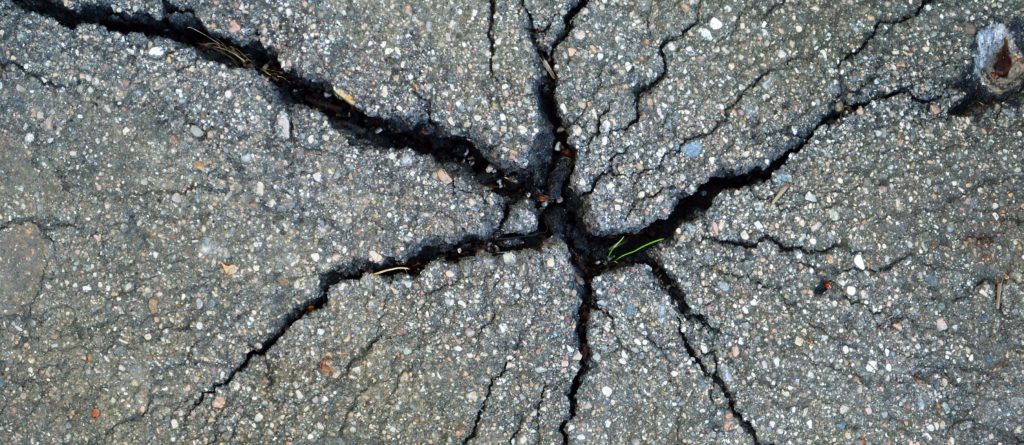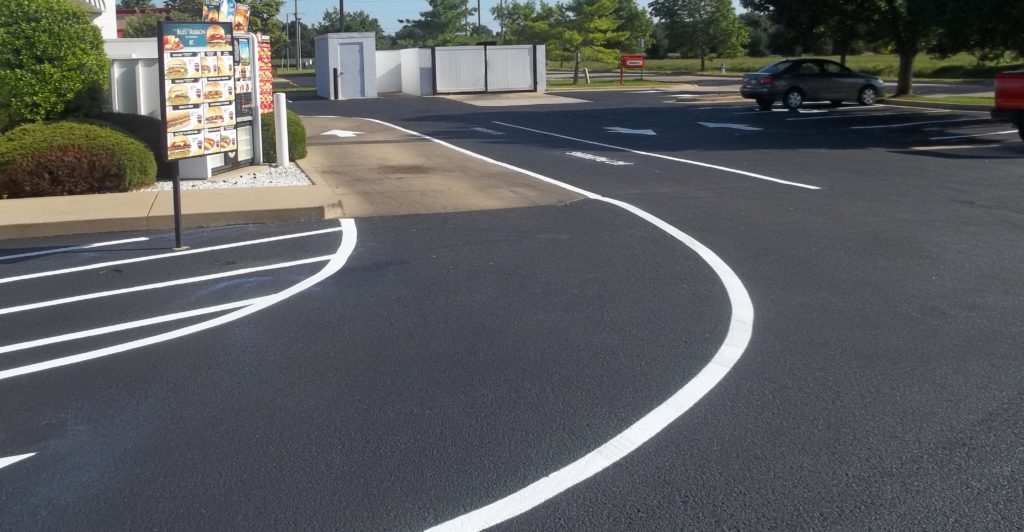All asphalt pavements will eventually require some sort of restoration, repair, or maintenance. This includes crack repair. But there is more than one way to treat cracks in asphalt pavement, and many people confuse them for one another. Cracks in asphalt pavement can either be sealed or filled, depending on several variables. Many people confuse the two terms as being the same task, when in fact, they are two separate methods to crack repair. It is important to understand their differences to accurately match the most effective and durable crack treatment.
Continue reading to learn the difference between crack filling and sealing, and when to use one over the other.
Working Cracks
In order to understand the methods behind crack sealing and filling, you need to know what the term, “working cracks” refers to. A working crack is a crack that is either vertical or horizontal, and is exhibiting movements greater than 2.5 millimeters. Examples of working cracks include transverse cracks, and in some cases, longitudinal cracks. The method of crack repair that should be used largely depends on the movement criteria of a crack.
Crack Filling
Non-working cracks, crack movements less than 2.5 millimeters, are better repaired using the crack filling method. During this process, specially-manufactured non-rubberized materials are placed within non-working cracks. Examples of such material includes crumb rubber, asphalt emulsion, AC-3, and more. This not only reinforces the pavement, it also drastically reduces water infiltration which can cause cracks to expand. Generally, longitudinal cracks are the most common types of non-working cracks, but in some cases, diagonal cracks and block cracks fit into the
non-working category as well.
Crack Sealing
Crack sealing is a method of crack repair for working cracks, like transverse cracks. In this process, special material is applied on top of, or above, working cracks, not inside. It is applied in a unique configuration to give the pavement less permeability, stopping water infiltration, salt, and other debris. Just like crack fillers, crack sealants are also rubberized products. These bend, stretch, and flex along with the surrounding pavement’s movement, preventing further cracking.
So in short, if you have cracks that are not really moving or expanding, then crack filling is the right treatment for your pavement. But if your cracks are in motion, then you will need to think about crack sealing services instead.
ACI Asphalt and Concrete Inc.
Call ACI Asphalt and Concrete at 317-549-1833 for professional crack filling and repair services in Indianapolis, Indiana. Our licensed road construction contractors provide a wide range of asphalt and concrete work for commercial and industrial properties, including inspections, installation, replacement, repair, and more. We also offer free estimates and consultations, flexible scheduling, references upon request, and more. Best of all, our work is backed by our 100% Satisfaction Guarantee, so you can rest assure that your investment is sound. Request a free quote, today.



